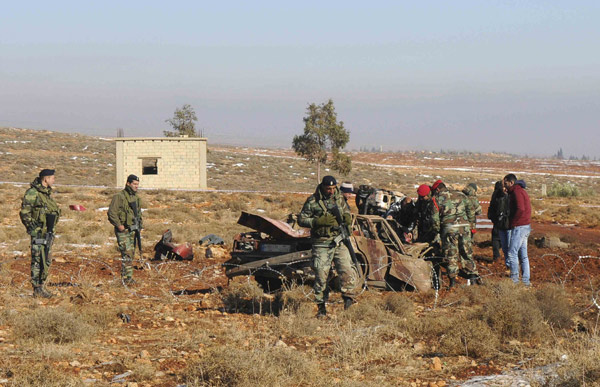

 |
|
Lebanese army security inspect the explosion site, east of Baalbeck city in Lebanon's Bekaa valley December 17, 2013.[Photo/Agencies] |
BEIRUT - Four people, including two Lebanese army soldiers, were injured on Tuesday when six rockets fired from the Syrian side struck the Hermel region in Lebanon's east Bekaa.
The rockets fired from Syria exploded near a Lebanese army barracks and a residential area in Hermel, which led to the injury of two soldiers, a local security source told Xinhua.
Later in the day, a little-known Islamist rebel group operating in Syria, "Marwan Hadid Brigades", claimed responsibility for the attack on their social network page, saying it fired ten Grad rockets at Hermel along with the "Al-Nusra Front of Lebanon."
"The al-Nusra Front of Lebanon and the Marwan Hadid Brigades announce that they have targeted the strongholds of Iran's party in the Lebanese area of Hermel with ten Grad rockets, in response to the entry of the Iranian party into Syria and the continued killing and detention of Sunni youths in Lebanon," the group said on their Twitter website.
It also warned that "operations will continue against Iran and its party in Syria and Lebanon".
Hermel and other Bekaa areas were hit by several rockets in recent months, with Syrian rebels claiming most of the attacks, which they say are in retaliation for Hezbollah's military intervention in Syria.







